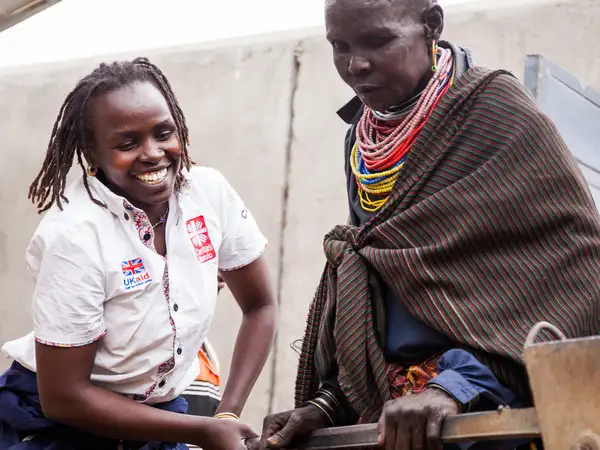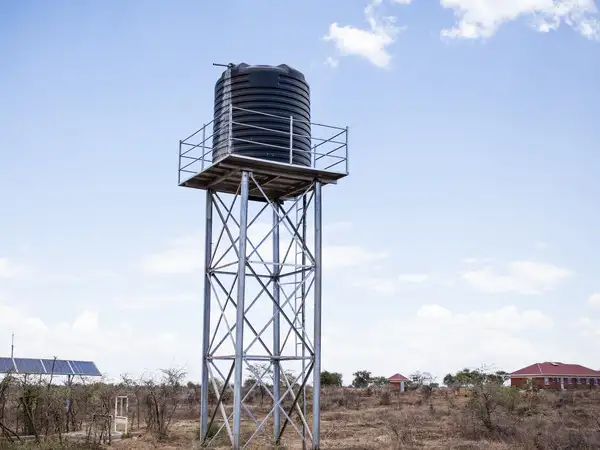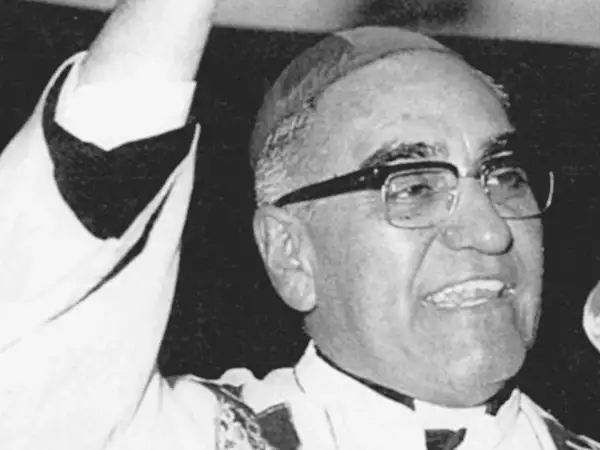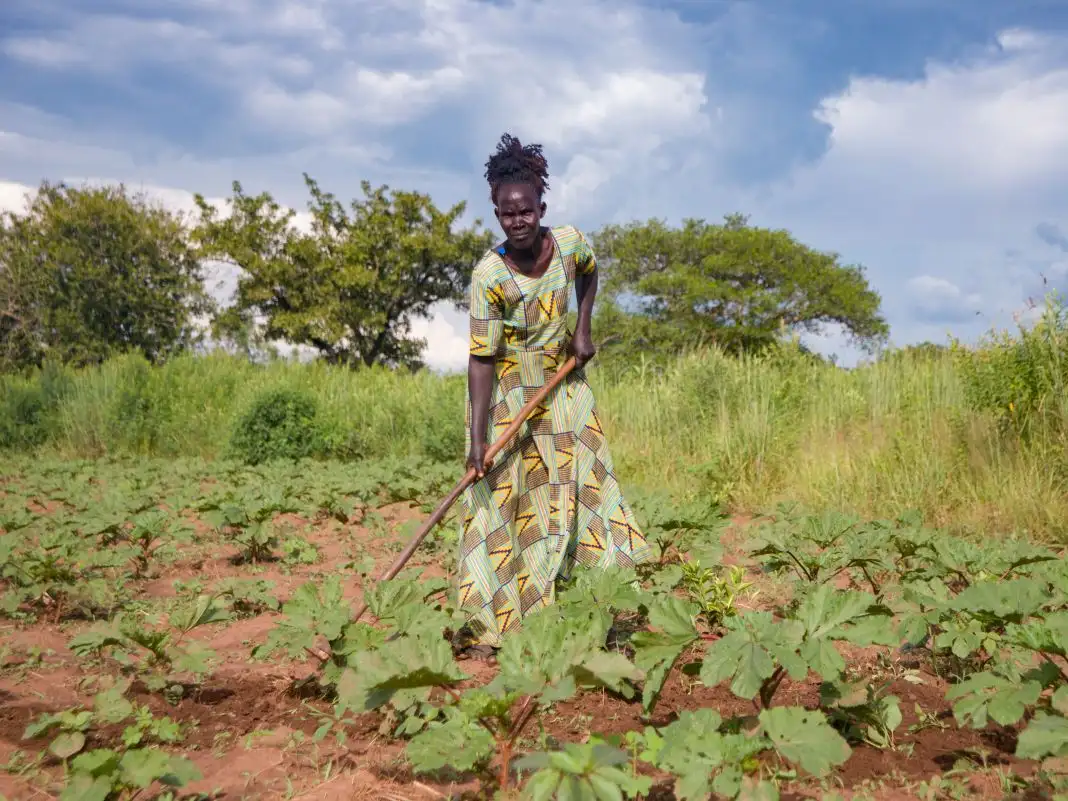

A farmer in Uganda weeding the okra growing in their garden
Uganda is a landlocked country full of diverse landscapes and abundant wildlife. It’s also the source of the Nile River, the longest river in the world. From the 1860s, the colonial British Empire created artificial boundaries for Uganda, which grouped together ethnic groups with different political systems and cultures. In 1962, when the country became independent, these differences caused major conflicts, the effects of which can still be felt today.
Despite massive positive strides in combatting diseases like HIV, as well as growing the economy, communities in Uganda still face an interconnected web of social and environmental challenges. These include inequality, food insecurity and a loss of biodiversity. Many years of an overreliance on, and exploitation of, natural resources, as well as the increasing frequency of extreme weather events, have resulted in declining productivity of the agricultural, forestry and fisheries industries, which form the basis of many livelihoods.
A better world needs all of us. That’s why CAFOD has been working alongside partners in Uganda since the 1980s. Together, we’ve been supporting people to fight disease, have food security and better access to water, and continue to strive for peace.
Our impact in 2024
In 2024 we reached 2,272 people in Uganda.
We supported over 580 farmers to adopt climate resilient practices like small-scale irrigation and beekeeping in Karena and Lamwo Districts.
We are working with 700 people in Kareng and Lamwo Districts to access affordable credit through village savings and loan associations.
We are working with schools in Karenga, Lamwo and Napak to promote agroforestry through school environment clubs.
Why CAFOD works in Uganda
Political instability in Uganda has contributed to the mismanagement of natural resources and is hindering social and economic transformation. Natural resources are being exploited with little attention given to wider and longer-term impacts.
The climate crisis has escalated already existing challenges of poverty, inequality and injustice. Vulnerable communities face marginalisation and exclusion. These further drive conflict, environmental degradation and biodiversity loss, leading to record levels of displacement.
Inequality persists, with limited access for young people and women to education and work, perpetuating poverty and widening the gap between the rich and poor. The Karamoja region in Uganda has been severely impacted by conflict, further hampering economic activity and education, and leaving young people vulnerable to recruitment into crime.
The earth is being exploited for the good of the few, while vulnerable people and communities are denied access to resources and opportunities that will enable them to improve their quality of life and flourish.
How we’re responding
Together, we can build a better world. Donations from you can directly respond to injustices faced by communities in Uganda. With your support, teams of local experts can work through our trusted Church network to deliver vital aid.
Current projects
We’re working alongside partners in Uganda to empower women and young people by promoting alternative sources of income, like developing honey, the installation of grinding mills, the establishment of businesses, and village savings and loans associations, leading to increased household incomes and improved stability.
Through our partners, we’re responding to the needs of vulnerable people affected by crises such as conflict and outbreaks of diseases, by providing crucial information, creating awareness and delivering protective equipment, as well as hand washing facilities, emergency food and hygiene kits.
We’re working with local partners to support communities to establish woodlots in Lamwo and Karamoka, alongside training in environmentally-friendly agriculture. In three schools in Karenga District, in Karamoja region, young learners have started planting trees and established fruit orchards to restore degraded landscapes and improve their nutrition: a total of 27 acres have been restored to help limit the worst impacts of the climate crisis.
We’re working to empower women at all levels by increasing their participation in decision-making processes related to the climate crisis, as well as equipping people with the necessary skills and resources they need to effectively respond to environmental challenges.
Caritas Gulu Archdiocese
Caritas Kotido
Caritas Moroto
National Catholic Commission for Justice and Peace - Uganda Episcopal Conference (NCCJP-UEC)
News from Uganda
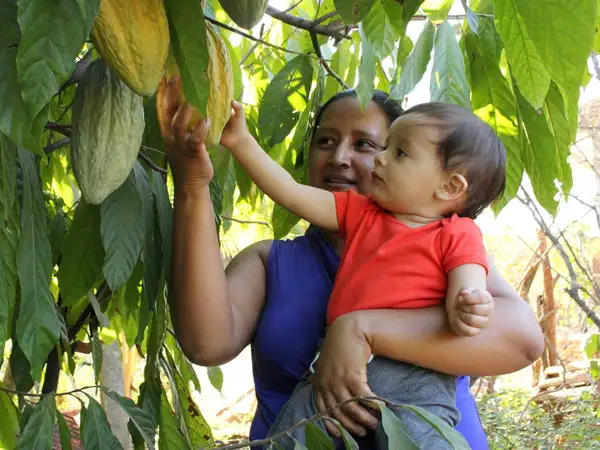
What we do
CAFOD is the official aid agency for the Catholic Church in England and Wales.
With your help, we reach out to people living in hard-to-reach places, in war zones and those who are discriminated against.


